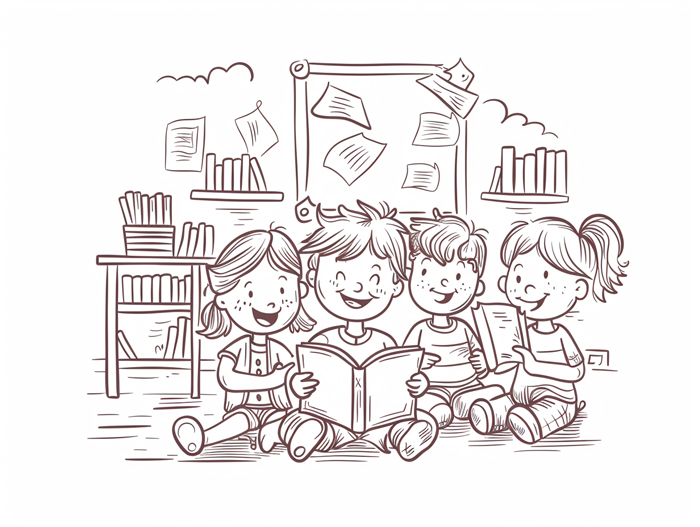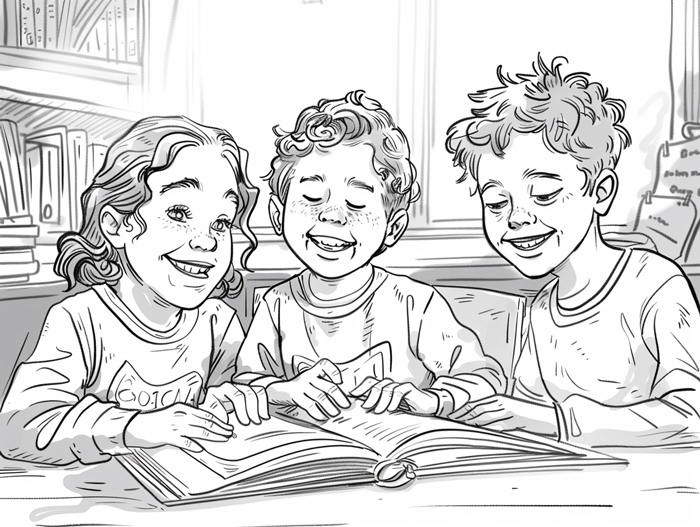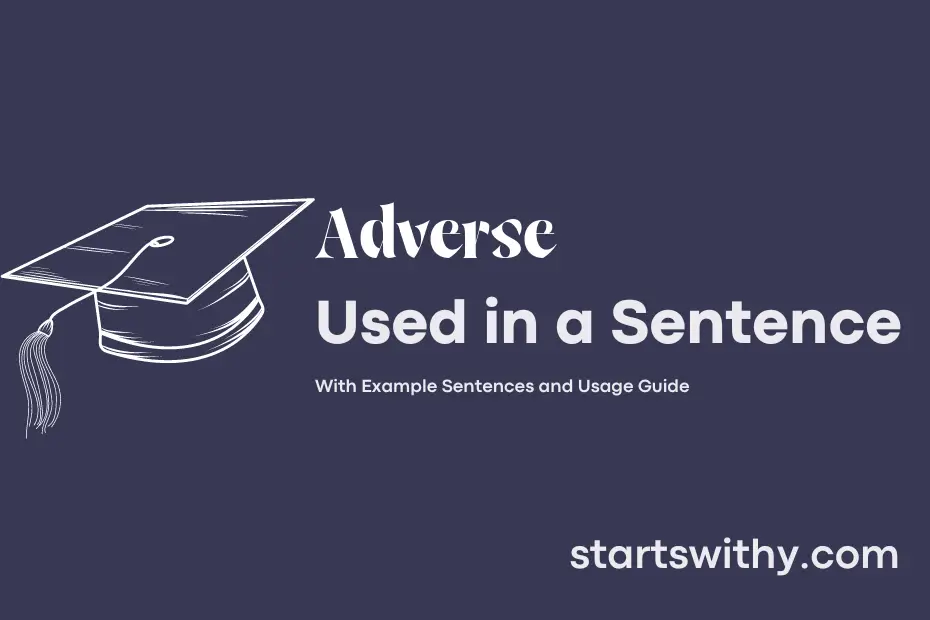Have you ever encountered a situation where the outcome was unfavorable or had a negative impact? This type of scenario can be described as “adverse.”
In the context of language and communication, an adverse situation or consequence often refers to something that brings about unwanted or harmful results. Whether it pertains to adverse weather conditions affecting travel plans or adverse reactions to medication, understanding how to use “adverse” in a sentence can help convey the idea of something unfavorable clearly and effectively.
7 Examples Of Adverse Used In a Sentence For Kids
- Eating too much candy can have adverse effects on your health.
- Not wearing warm clothes in winter can lead to adverse effects on your body.
- Skipping meals can have adverse effects on your energy levels.
- Being mean to others can have adverse effects on your friendships.
- Not listening to your teacher can have adverse effects on your learning.
- Watching too much TV can have adverse effects on your eyes.
- Not brushing your teeth can lead to adverse effects on your dental health.

14 Sentences with Adverse Examples
- Adverse weather conditions might affect your commute to college, so it’s important to plan accordingly.
- It’s crucial to maintain a healthy lifestyle to avoid adverse effects on your academic performance.
- Skipping classes can have adverse consequences on your understanding of the subject matter.
- Procrastination can lead to adverse effects on your grades and stress levels.
- Joining too many extracurricular activities can have an adverse impact on your time management skills.
- Failing to meet assignment deadlines can result in adverse outcomes on your overall academic progress.
- Not getting enough sleep can have adverse effects on your concentration in lectures and during exams.
- Engaging in risky behavior like substance abuse can have adverse consequences on your mental and physical health.
- Ignoring feedback from professors can lead to adverse results in your learning and growth as a student.
- Trying to cheat on exams can have adverse effects on your academic integrity and reputation.
- Protesting against college policies in a disruptive manner may lead to adverse disciplinary actions.
- Sharing personal information carelessly online can have adverse implications on your privacy and security.
- Taking on too many courses in a semester can result in adverse effects on your mental well-being and academic performance.
- Not seeking help from counselors or support services when feeling overwhelmed can have adverse effects on your mental health and overall college experience.

How To Use Adverse in Sentences?
Adverse means harmful or unfavorable. When using the word in a sentence, it typically describes a situation or condition that is not beneficial or has a negative impact.
Here are a few examples of how to use adverse in a sentence:
- The hurricane had an adverse effect on the local economy, causing businesses to shut down and tourists to stay away.
- Smoking can have adverse effects on your health, increasing the risk of lung cancer and heart disease.
- The athlete’s performance was hindered by the adverse weather conditions during the race.
- Poor time management skills can have adverse consequences on your academic performance.
- The new medication had some adverse side effects, leading the patient to discontinue its use.
Remember to use adverse when you want to convey a sense of harm, negativity, or unfavorable conditions. By incorporating this word into your vocabulary, you can effectively communicate situations where something is working against a desired outcome.

Conclusion
In conclusion, sentences with the keyword “adverse” often showcase negative consequences, unfavorable effects, or harmful outcomes. These sentences highlight the importance of being aware of potential risks and taking precautions to avoid adverse situations. Whether describing adverse effects of a medication, adverse weather conditions, or adverse impacts on the environment, these examples emphasize the need to address challenges proactively to prevent undesirable outcomes.
By paying attention to sentences with the word “adverse,” individuals can better understand the potential risks associated with various situations and make informed decisions to mitigate these hazards. Awareness of adverse consequences can lead to better planning, risk management, and problem-solving strategies to avoid or minimize negative impacts in personal, professional, and environmental contexts.



